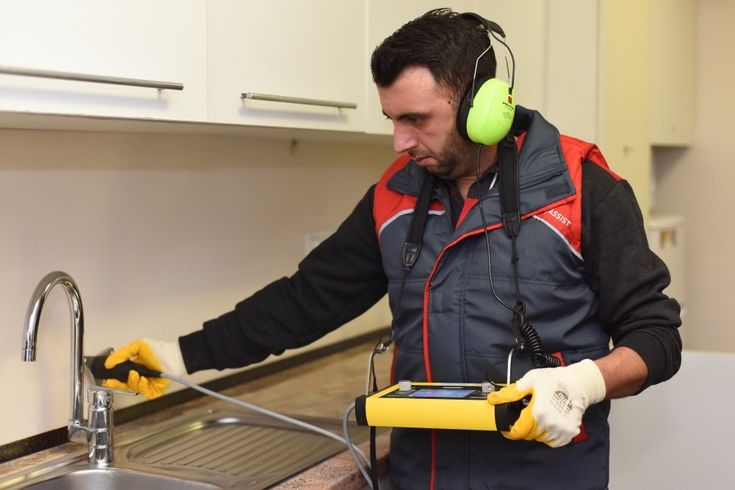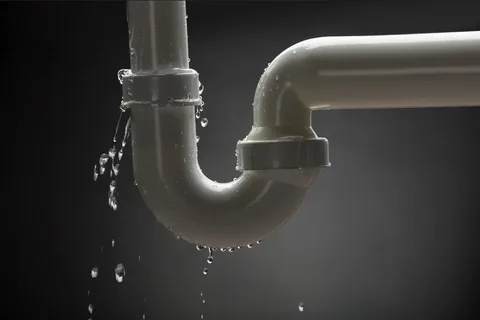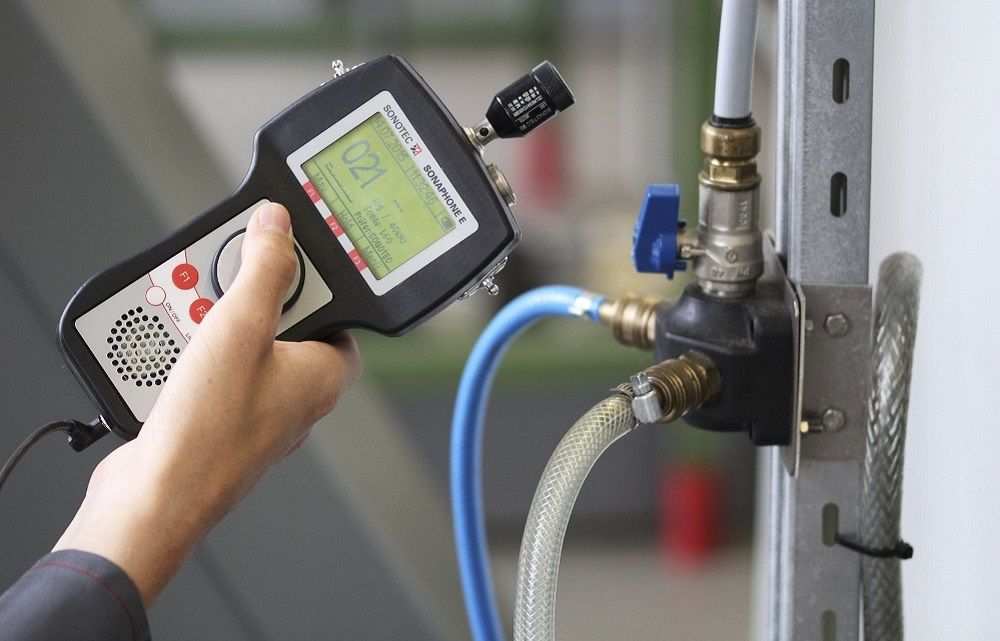
Effective Water Leak Detection and Audit Methods for Homes and Businesses
Leaks in the plumbing can do a lot of damage to homes and businesses, requiring expensive fixes and wasting resources. Finding leaks early and doing regular water checks are important ways to keep these problems from happening. Find the source of a leak, whether it’s a slow drip from a tap or a leak deep underground. This will save you money and water. This article will talk about the best ways to find water leaks in homes and businesses, as well as important auditing techniques to make sure that the right amount of water is being used. You can protect your property, save resources, and keep your water system running well by using these tips.

The Costly Consequences of Undetected Water Leaks
Water leaks that aren’t found can cost homes and companies a lot of money and damage the environment. It’s possible for even small leaks to do a lot of damage to walls, floors, and structures if they aren’t fixed. Another common result is higher water bills, since leaks waste gallons of water over time and add to extra energy costs. Leaks that aren’t found cost money and hurt the environment by wasting valuable water resources, which causes people to use more water. Leaks can sometimes cause mold to grow, which can lower the quality of the air inside and put people’s health at risk. To keep property owners from having to deal with these expensive and damaging problems, water leaks must be fixed as soon as possible through monitoring and audits.
Common Signs of Water Leaks in Homes and Businesses
Water leaks can be tricky, and they often do a lot of damage before anyone notices them. If you find leaks early, you can escape having to pay a lot of money for repairs and waste water. Every home and business should be on the lookout for typical signs of water leaks. Being proactive is important for everything from damage that can be seen to small changes in your energy bills. Here are some important signs to look out for that could mean you have a water leak.
Visible Signs: Stains, Mold, and Warped Flooring
Damage that can be seen is one of the most clear signs of water leaks. Wall and ceiling spots that are brown or yellow are often signs of roof or pipe leaks. Mold and mold growth in damp places can be a sign of water damage, while floors that are warped or paint that is peeling off can be signs of long-term moisture problems.
Subtle Clues: Increased Water Bills, Low Water Pressure, and Unusual Noises
There are times when the signs of a water leak are not as clear. If you don’t change how much water you use, but your bills go up all of a sudden, there might be a secret leak. In the same way, low water flow could mean that water is leaving the system. Also, weird sounds like hissing or dripping, especially coming from pipes that you can’t see, can be a sign of trouble.
The Importance of Regular Checks
Leaks must be found quickly through regular checks. Property owners can find possible problems before they become big ones by checking plumbing fixtures, pipes that are bare, and outdoor irrigation systems. Businesses with big water systems can avoid costly leaks that might go unnoticed by having professionals check on them on a regular basis.
Top 5 Effective Water Leak Detection Methods for Homes
If you don’t spot a water leak, it can cause major damage to the building that will cost a lot to fix. Luckily, there are a number of things that residents can do to find leaks early. These five methods will help you find leaks before they become big problems.
Meter Check Method
Using your water meter is an easy but effective method. Switch off all water-using machines and monitor the water meter closely. If the reading changes, it’s possible that there’s a hidden leak. This do-it-yourself method is quick, easy, and very good at finding leaks all over the house.
Dye Test for Toilet Leaks
Toilets often have leaks that you can’t hear. Put food coloring in the toilet tank and wait 15 to 20 minutes to see if it works. You must flush the toilet to prevent the color from entering the bowl without flushing. This process identifies leaks that could waste gallons of water every day.
Visual Pipe and Faucet Inspection
Regularly checking exposed lines and faucets can detect leaks early. Check for drips, rust, or corrosion in the areas where things meet and join. Over time, even small drips can add up and cause water damage and higher bills. Keeping an eye out for problems with visual checks helps keep costs down.
Moisture Sensors for Homes
More and more homes who want to stop leaks are using moisture sensors. You can put these small devices near places where problems might happen, like sinks, water heaters, or basements. When it detects moisture, the sensor sends a warning, enabling prompt action before major damage occurs.
Professional Inspection
Even though do-it-yourself methods work sometimes, it’s best to hire a plumber to do a full check. Plumbers use high-tech tools like thermal imaging cameras and sound devices to find leaks hidden behind walls or below ground. Regular professional checks ensure the resolution of all potential trouble areas.

The best water leak detection technologies for businesses
Businesses typically have larger water systems, making leaks harder to find and more expensive to fix when they go unnoticed. Businesses can find and fix water leaks quickly with modern technologies, saving time and money and preventing property damage. These are the best tools that companies can use to make sure their water systems work well and don’t leak.
Automated Leak Detection Systems
Automated systems, such as Flo by Moen or Phyn, can monitor water flow in real time and shut off the water supply if they detect a leak. Businesses with numerous pipes benefit greatly from these systems, as they provide round-the-clock monitoring and prompt alerts in the event of water usage problems.
Smart Water Meters
Smart water meters provide a sophisticated method for monitoring water consumption. These meters give businesses real-time and thorough reports on how much water they use, which helps them spot spikes that don’t make sense and could be signs of a leak. Smart meters are ideal for large buildings because many come with software that allows you to monitor them from afar.
Thermal Imaging Cameras
Thermal imaging cameras with infrared technology can detect leaks hidden behind walls or under floors. Because they pick up on changes in temperature caused by leaking water, these cameras are a handy way to find leaks without having to do any invasive inspections. This technology is excellent for companies that need to find leaks quickly and without damaging anything.
Sound Leak Detection
Acoustic leak monitoring uses sound waves to detect leaks in pipes. When water leaks out of pipes through small cracks or holes, devices can detect the low levels of sound. Businesses with buried wiring benefit greatly from this method, as it allows for precise measurement without the need for excavation or property damage.
Building Management Systems (BMS)
A lot of businesses use Building control Systems (BMS) that handle a lot of different utilities, like water control. The Building Management System (BMS) has the ability to install sensors throughout the building, which detect leaks and promptly notify facility managers. This all-in-one answer helps stop large-scale water damage and makes sure that help arrives quickly.
Conducting a Water Audit for Homes: Step-by-Step Guide
A water audit is an important process that helps people figure out how much water they are using, find waste, and find possible leaks. You can make smart choices about how to use less water, save money on utilities, and protect the environment by doing a water audit. The steps to check your home’s water are here.
Assess Your Water Bills
First, look over your last few months’ worth of water bills. Check for any rapid rises, which could indicate a leak or excessive water use. To see where you can save money, compare your usage to the average for your area or country. This first evaluation will help you keep track of your progress.
Check for Leaks
The next thing you should do is look all over your house for leaks. Check for drips or pools of water in the taps, toilets, water heaters, and outdoor hoses. Use the meter check method, which involves turning off all water sources and monitoring your water meter. If the meter moves, there’s probably a leak that you need to fix.
Evaluate appliance efficiency.
Look at how well your water-using tools, like water heaters, dishwashers, and washing machines, work. Older machines usually use more water than newer, more energy-efficient ones. You may want to purchase products with the Water Sense label because they use less water without compromising their performance.
Figure out how much water your home uses
Count how many times you use the toilet, taps, and showers to get an idea of how much water your home uses every day. For help with this, you can use online calculators or worksheets that water saving programs offer. In this step, you’ll find the places that use the most water.
Identify Water-Wasting Habits
During your check, record any ways in which your family wastes water. For example, you might leave the tap running while you brush your teeth, water your yard too much, or only wash small loads in the washing machine. Once these habits are known, they are simple to change in order to save water.
Implement Water-Saving Solutions
Once you’ve finished your water audit, you can start using water-saving methods. This could mean putting in low-flow showerheads and taps, fixing leaks right away, or changing the settings on sprinkler systems to use less water. By making these small changes, you can cut down on the amount of water you use overall.
How Businesses Can Implement Water Audits for Efficiency
Businesses that want to save money, use less water, and be more environmentally friendly must do a water audit. A comprehensive water audit identifies areas of water waste, such as leaks, malfunctioning systems, and excessive usage. Here’s how businesses can do water checks correctly to save money and avoid problems like leaks and clogs.
Start with a Leak Detection Service
A Leak Detection Service is the first thing that needs to be done in a business water audit. Over time, even minor leaks can result in significant water loss. Working with the Best Leak Detection Company allows businesses to quickly uncover hidden problems in pipes, walls, or the ground. Early discovery prevents costly damage and wastes less water.
Check for Clogged Sewer Systems
The next step is to check your pipes for any clogs that might be wasting water. Businesses can use Commercial Clogged Sewer Services to clear out sewers that might be clogged and stopping water flow or causing backups. Experts check and maintain sewer systems on a regular basis to ensure that they work well and avoid future problems.
Inspect Faucets and Water Fixtures
In a business setting, faucets that leak or don’t work well can lose a surprising amount of water. During the check, make sure to inspect all of the faucets and fixtures. Hiring Residential Faucet Repair Experts or business experts makes sure that all of your water fixtures are in good shape. Quick fixes, such as repairing a faucet, can prevent long-term water waste and improve the overall system’s performance.
Analyze Water Bills and Consumption Patterns
Look over your business’s water bills to see if there are any strange usage spikes. Sudden rises may indicate undiscovered weaknesses or leaks in the system. Businesses can identify trends and ways to improve by looking at how people purchase things. Compare how much water you use to standards in your field to find places where you can save transpiration.
Use technologies that save water
Once the water audit is complete, implement strategies to enhance efficiency. You might want to get smart water meters or replace old equipment with ones that use less energy. Leak Detection and Clogged Sewer Services can help keep systems running smoothly and prevent unnecessary water loss.

When to hire a Professional Water Leak Detection service
It’s crucial to identify and address water leaks promptly to prevent severe damage to your property. Some leaks Homeowners can find and fix some leaks, but sometimes they need to hire a professional water leak detection service.e important times when you might want to call in the professionals.
Persistent, Unexplained water bills
Unknown leaks may cause your water bills to rise without using more water. Professional water leak tracking services use cutting-edge technology to quickly and accurately find the leak source, saving you money and preventing damage.
Visible Signs of Water Damage
When you observe visible signs of water damage, such as stains on walls, ceilings, or floors, it’s time to call in professionals. Often, these signs indicate hidden signal leaks. A skilled service can determine the extent of the damage and its source, ensuring a complete solution to the problem.
Plumbing systems that are difficult to access or are buried
Finding hidden or buried leaks in water systems can be challenging without special tools. Professional water leak detection services use cutting-edge methods, like thermal imaging and sound leak detection, to find leaks in tough-to-reach places without having to dig or tear down anything.
Frequent Clogs and Backups
If your property frequently experiences clogs or sewer backups, you may need to address a leak or blockage issue. You can hire a professional service for more information on the cause of these issues, such as sewer system leaks or garbage buildup. This can keep you from having to pay for expensive fixes in the future.
New home improvements or landscaping
If you’ve recently had home improvements or landscaping done, you should have a professional service Check your pipes for water leaks. Any changes to the ground or buildings can damage pipes, resulting in leaks. An evaluation by a professional can help find any problems early on, keeping your home safe and water-efficient.
Conclusion
In conclusion, proactive water leak detection and auditing are essential for safeguarding homes and businesses from costly damages and resource wastage. By using good detection methods and doing regular checks, property owners can find leaks early, use less water, and keep their water system in good shape. Spending time on these habits will save you a lot of money and help the world in the long run.
